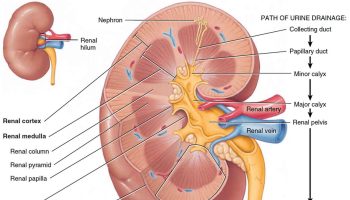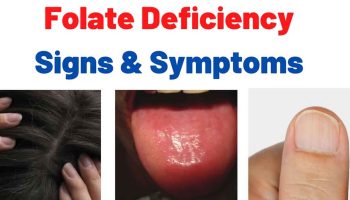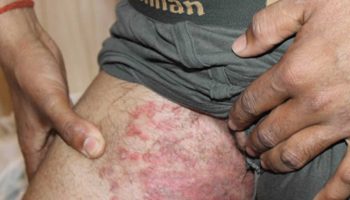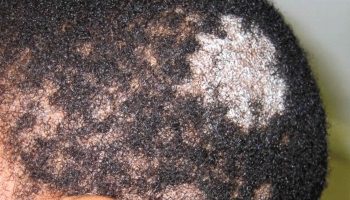Contents
What is hypersexuality
Hypersexuality has been defined as abnormally increased sexual activity or compulsive sexual behavior 1. Hypersexuality has been called hypersexuality disorder, sexual compulsivity, sexual dependency, or sexual addiction. Sexual addiction (hypersexuality) is defined as any compulsive sexual behavior, an excessive preoccupation with sexual fantasies, urges or behaviors that is difficult to control, that interferes with normal living and causes severe stress on the family, friends, loved ones, and one’s work environment.
By any name, hypersexuality is a compulsive behavior that completely dominates the addict’s life. Sexual addicts make sex a priority more important than family, friends, and work. Sex becomes the organizing principle of addict’s lives. They are willing to sacrifice what they cherish most to preserve and continue their unhealthy behavior 2. Hypersexual desire has been delineated as desire based on a lifetime assessment of the frequency of sexual behavior and time spent in associated sexual fantasies. In males, an evaluation of hypersexual desire was defined by Kafka and Hannen as the highest sustained period (at least six months minimum duration) of persistently enacted sexual behavior (total sexual outlet/Week after age 15). In fact, a longitudinal history of hypersexual desire, operationally defined as above, was identified in 72-80% of males seeking treatment for paraphilias (recurrent, intense sexually arousing fantasies, sexual urges or behaviors generally involving nonhuman objects, the suffering or humiliation of oneself or one’s partner, or children or other nonconsenting persons that occur over a period of six months) and paraphilia-related disorders 3.
Hypersexuality or compulsive sexual behavior may involve a variety of commonly enjoyable sexual experiences. Examples include masturbation, cybersex, multiple sexual partners, use of pornography or paying for sex. When these sexual behaviors become a major focus in your life, are difficult to control, and are disruptive or harmful to you or others, they may be considered compulsive sexual behavior.
No matter what it’s called or the exact nature of the behavior, untreated compulsive sexual behavior can damage your self-esteem, relationships, career, health and other people. But with treatment and self-help, you can learn to manage compulsive sexual behavior.
What are the issues for partners?
Finding out that your partner is a sex or pornography addict is devastating for most partners. Not only do partners experience the betrayal and deceit that often accompanies an affair, but they may also have to face a future with a partner living in recovery from addiction. Most partners have absolutely no idea that their partner is an addict until it is either disclosed or discovered, so shock is the first and most intense emotion. Along with that are feelings of anger, shame, self-doubt, loss and fear.
How do you know if your partner is a sex addict?
It’s impossible to know if someone is a sex addict without a thorough assessment with a sex therapist, but warning signs include increasing secrecy, isolation, moodiness and avoidance of couple, family and social responsibilities. There may be increased irritability, tiredness, depression and anxiety and some couples notice an impact on their sex life such as erectile difficulties or avoiding sex. But do remember there are many explanations for all of these behaviours so it’s important not to jump to conclusions. However, if you know your partner has struggled with addictions in the past and you also know that they use pornography – it may be worth asking if their pornography use has increased or become problem for them.
What should you do if you think you or your partner has a problem?
First and foremost you need to talk to each other. Many people with addiction go through a period of denial before they feel able to accept that the problem really is an addiction that has gotten out of control. If your partner accepts that they have a problem then you need to find help for both of you.
If your partner doesn’t accept, or believe, that they have a problem then you can still reach out for help and support for yourself. The problem may not be addiction, but if it’s something that’s affecting your happiness then you can still benefit from talking to a counsellor about how you can move forward.
When to see a doctor
Seek help if you feel you’ve lost control of your sexual behavior, especially if your behavior causes problems for you or other people. Compulsive sexual behavior tends to escalate over time, so get help when you first recognize there may be a problem.
As you decide whether to seek professional help, ask yourself:
- Can I manage my sexual impulses?
- Am I distressed by my sexual behaviors?
- Is my sexual behavior hurting my relationships, affecting my work or resulting in negative consequences, such as getting arrested?
- Do I try to hide my sexual behavior?
Seeking help for compulsive sexual behavior can be difficult because it’s such a deeply personal matter. Try to:
- Set aside any shame or embarrassment and focus on the benefits of getting treatment.
- Remember that you’re not alone — many people struggle with compulsive sexual behavior. Mental health professionals are trained to be understanding and discreet. But not all mental health professionals are experienced in treating compulsive sexual behavior, so make sure you find a therapist who is competent in this area.
- Keep in mind what you say to a doctor or mental health professional is kept confidential, except in cases where you report that you’re going to hurt yourself or someone else, you report sexual abuse of a child, or you report abuse or neglect of someone in a vulnerable population.
Seek immediate treatment if:
- You think you may cause harm with uncontrolled sexual behavior
- You have other problems with impulse control, and you feel like your sexual behavior is slipping out of control
- You are suicidal — if you’re thinking of attempting suicide, call 911 or your local emergency number, or the National Suicide Prevention Lifeline (in the United States) at 1-800-273-8255
Hypersexuality and gender differences
It is well established that in the human sexual community and literature sexual desire is capitulated as the presence of sexual fantasies, activities or urges, and motivation by the human to engage in sexual behaviors. There are both internal and external relevant cues 4. Evolutionary theory proponents have argued that men and women have different agendas when it comes to sexual activity 5. Numerous studies reveal distinct differences between males and females. Males have increased sexual fantasy 6, increased frequency of masturbation 7, increased propensity for externally generated visual sexual arousal 8 permissive attitudes toward casual sex 9, ease of arousal 10 and intrinsic motivation 11. In contrast, females show a different sexual landscape with sexual motivation, sexual arousal, and sexual behavior being shaped by evolutionary factors 12 and greater biological, emotional, and temporal investment in reproduction and child-rearing 13. Females are less vulnerable to hypersexuality 14 and adapted to foster affiliative relationships and longer-term partner commitment 15. While sexual addiction is estimated to afflict up to 3% to 6% of the population, the clear understanding of the neurobiological antecedents are limited 16 as well as clinical assessments 17. We encourage further reading on sexual compulsion, attachment and sexual orientation 18, and gender differences in responses to sexual stimuli 19.
It is noteworthy that Kafka and Hennen 3, found that the mean age of onset of persistent hypersexual behavior was 18.7±7.2 years in sexually active men and the age range of onset of hypersexual behavior was age 7-46. The average duration of this highest consistently maintained frequency of sexual appetitive behavior was 12.3±10.1 years. However, the mean age of these active sexual males being hypersexual that sought treatment was 37±9 years. Hanson, et al. 20 also evaluated hypersexuality in offenders and found that low offenders had lower recidivism rates than high-risk offenders.
Hypersexuality and co-morbid substance abuse
There is a high co-morbidity between hypersexual disorder and other addictions, such as substance use disorder 21. Specifically, Garcia and Thibaut proposed that the phenomenology of excessive non-paraphilic sexual disorder should be classified as an addictive behavior, rather than an obsessive-compulsive, or an impulse control disorder 22. They correctly point out that the criteria are quite close to those of addictive disorders as also proposed by others 23. These investigators have provided the impetus for continued research in this area and possible future inclusion of hypersexual disorder in the DSM-6. Drugs of abuse, rock ’n’ roll, and sex are co-occurring, and entire festivals have been built around these combinations from Woodstock to the present.
The literature reveals that users of methamphetamine report that this stimulatory drug increases sexual desire, especially risky behavior. However, amphetamine has been shown to reduce the sexual activity of female rats. With this in mind, Holder, et al. 24 evaluated the role of methamphetamine in female rats. They found that, on the contrary, methamphetamine facilitated female sexual behavior, and this effect is due to enhancement of dopaminergic transmission and even possible neurotransmission due to the combination of ovarian hormones and methamphetamine. Specifically, they found an enhancement of sexual motivation coupled with activation of neuronal activity in the medial amygdala and ventromedial nucleus of the hypothalamus.
Moreover, scientists from the Netherlands have studied the co-morbidity of substance abuse in self-identified swingers 25. In this study, Spauwen, et al. 25 concluded that 79% of swingers reported recreational drug use (including alcohol and use of erectile dysfunction drugs); 46% of them reported multiple drug use. In fact, recreational drug use (excluding alcohol and erectile dysfunction drugs) was significantly linked with high-risk sexual behaviors in men and women. Also, drug use was independently associated with sexually transmitted infections (STI) in female swingers, especially those who participate in group sex.
Castelo-Branco, et al. 26 reported that young adult women perceive that sexuality is an important part of their life but not a primary concern (77.6%). They also reported that alcohol removes the barriers to having sex (62.3%). Importantly, they also found that alcohol abuse was a predictive variable in enhancing risky behaviors independent of the age of the female.
It is noteworthy that Jia, et al. 27 reported dangerous sexual behaviors among psychostimulant and heroin abusers, including multiple sexual intercourse, casual sexual partners, homosexual partners, and never or occasionally practicing safe sex.
Complications of compulsive sexual behavior
Compulsive sexual behavior can have many negative consequences that affect both you and others. You may:
- Struggle with feelings of guilt, shame and low self-esteem
- Develop other mental health conditions, such as depression, suicide, severe distress and anxiety
- Neglect or lie to your partner and family, harming or destroying meaningful relationships
- Lose your focus or engage in sexual activity or search internet pornography at work, risking your job
- Accumulate financial debts buying pornography and sexual services
- Contract HIV, hepatitis or another sexually transmitted infection or pass a sexually transmitted infection to someone else
- Engage in unhealthy substance use, such as using recreational drugs or drinking excessive alcohol
- Be arrested for sexual offenses
Hypersexuality causes
The causes of sex addictions are often rooted in childhood or adolescence. Early trauma, neglect or depression are potential reasons. One US study revealed that 80% of participants with a sex addiction suffered emotional trauma or sexual abuse during their childhood.
Although the causes of sexual addiction are unclear, they may include:
- An imbalance of natural brain chemicals. Certain chemicals in your brain (neurotransmitters) such as serotonin, dopamine and norepinephrine help regulate your mood. High levels may be related to compulsive sexual behavior.
- Changes in brain pathways. Compulsive sexual behavior may be an addiction that, over time, might cause changes in the brain’s neural circuits, especially in the reinforcement centers of the brain. Like other addictions, more-intensive sexual content and stimulation are typically required over time in order to gain satisfaction or relief.
- Conditions that affect the brain. Certain diseases or health problems, such as epilepsy and dementia, may cause damage to parts of the brain that affect sexual behavior. In addition, treatment of Parkinson’s disease with some dopamine agonist medications may cause compulsive sexual behavior.
Risk factors for sexual addiction
Compulsive sexual behavior can occur in both men and women, though it may be more common in men. It can also affect anyone, regardless of sexual orientation. Factors that may increase risk of compulsive sexual behavior include:
- Ease of access to sexual content. Advances in technology and social media allow access to increasingly intensive sexual imagery and information.
- Privacy. Secrecy and privacy of compulsive sexual activities tend to allow these problems to worsen over time.
Also, an increased risk of compulsive sexual behavior may occur in people who have:
- Alcohol or drug abuse problems
- Another mental health condition, such as a mood disorder (such as depression or anxiety), or a gambling addiction
- Family conflicts or family members with problems such as addiction
- A history of physical or sexual abuse
Hypersexuality prevention
Because the cause of compulsive sexual behavior isn’t known, it’s not clear how it might be prevented, but a few things may help keep this type of behavior in check:
- Get help early for problems with sexual behavior. Identifying and treating early symptoms may help prevent compulsive sexual behavior from getting worse over time or escalating into a downward spiral of shame, relationship problems and harmful acts.
- Seek treatment early for mental health disorders. Compulsive sexual behavior may be worsened by depression or anxiety.
- Identify and seek help for alcohol and drug abuse problems. Substance abuse can cause a loss of control and unhappiness that can lead to poor judgment and may push you toward unhealthy sexual behaviors.
- Avoid risky situations. Don’t jeopardize your health or that of others by putting yourself into situations where you’ll be tempted to engage in risky sexual practices.
Hypersexuality symptoms
Some indications that you may be struggling with compulsive sexual behavior include:
- You have recurrent and intense sexual fantasies, urges and behaviors that take up a lot of your time and feel as if they’re beyond your control.
- You feel driven to do certain sexual behaviors, feel a release of the tension afterward, but also feel guilt or remorse.
- You’ve tried unsuccessfully to reduce or control your sexual fantasies, urges or behavior.
- You use compulsive sexual behavior as an escape from other problems, such as loneliness, depression, anxiety or stress.
- You continue to engage in sexual behaviors that have serious consequences, such as the potential for getting or giving someone else a sexually transmitted infection, the loss of important relationships, trouble at work, financial strain, or legal problems.
- You have trouble establishing and maintaining healthy and stable relationships.
Sexual addiction diagnosis
Your doctor or other mental health professional can do a psychological evaluation, which may involve answering questions about your:
- Physical and mental health, as well as your overall emotional well-being
- Sexual thoughts, behaviors and compulsions that are hard to control
- Use of recreational drugs and alcohol
- Family, relationships and social situation
- Problems caused by your sexual behavior
With your permission, your mental health professional may also request input from family and friends.
Determining a diagnosis
There’s an ongoing debate in the psychiatric community about exactly how to define compulsive sexual behavior because it’s not always easy to determine when sexual behavior becomes problematic.
Many mental health professionals use the Diagnostic and Statistical Manual of Mental Disorders (DSM-5), published by the American Psychiatric Association, as a guide for diagnosing mental health problems. Because compulsive sexual behavior doesn’t have its own diagnostic category in the DSM-5, it may be diagnosed as a subcategory of another mental health condition, such as an impulse control disorder or a behavioral addiction.
Some mental health professionals consider compulsive sexual behaviors as sexual activities taken to an extreme with significant and negative consequences. Although more research is needed to clarify and classify all the criteria, diagnosis and treatment by a mental health professional who has expertise in addictions and compulsive sexual behaviors will likely yield the best results.
Hypersexuality treatment
Treatment of sexual addiction is an ongoing field of study with several promising options, although few controlled trials exist to provide evidence-based recommendations.
Like other behavioral disorders, appropriate treatment of sexual addiction includes psychotherapy, medications and self-help groups. Cognitive behavioral therapy provides patients with structured environments to better understand and manage their compulsive behavior. Cognitive behavioral therapy has been studied in Internet-mediated sexual addiction, with clinically significant improvement 28.
A primary goal of treatment is to help you manage urges and reduce excessive behaviors while maintaining healthy sexual activities.
If you have compulsive sexual behavior, you may also need treatment for another mental health condition. People with compulsive sexual behavior often have alcohol or drug abuse problems or other mental health problems, such as anxiety or depression, which need treatment.
People with other addictions or severe mental health problems or who pose a danger to others may benefit from inpatient treatment initially. Whether inpatient or outpatient, treatment may be intense at first. And you may find periodic, ongoing treatment through the years helpful to prevent relapses.
Psychotherapy
Psychotherapy, also called talk therapy, can help you learn how to manage your compulsive sexual behavior. Types of psychotherapy include:
- Cognitive behavioral therapy (CBT), which helps you identify unhealthy, negative beliefs and behaviors and replace them with more adaptive ways of coping. You learn strategies to make these behaviors less private and interfere with being able to access sexual content so easily.
- Acceptance and commitment therapy, which is a form of CBT that emphasizes acceptance of thoughts and urges and a commitment to strategies to choose actions that are more consistent with important values.
- Psychodynamic psychotherapy, which is therapy that focuses on increasing your awareness of unconscious thoughts and behaviors, developing new insights into your motivations, and resolving conflicts.
These therapies can be provided in an individual, group, family or couples format.
Medications
In addition to psychotherapy, certain medications may help because they act on brain chemicals linked to obsessive thoughts and behaviors, reduce the chemical “rewards” these behaviors provide when you act on them, or reduce sexual urges. Which medication or medications are best for you depend on your situation and other mental health conditions you may have.
Pharmacologic treatments also have limited supporting evidence. Several case studies and one small randomized trial show benefit with selective serotonin reuptake inhibitors (SSRIs) 29. Case reports on various other approaches, including naltrexone (Vivitrol) 30 and topiramate (Topamax) 31, show promise, although further research is needed before their use for sexual addiction becomes commonplace. Pharmacologic therapy should function as an adjunct to behavioral interventions; it can be considered early in the recovery process to moderate compulsivity, especially for compulsions that threaten the patient’s safety or livelihood. Titration of an SSRI may also be considered in the presence of comorbid mood disorders.
Medications used to treat compulsive sexual behavior are often prescribed primarily for other conditions. Examples include:
- Antidepressants. Certain types of antidepressants used to treat depression, anxiety or obsessive-compulsive disorder may help with compulsive sexual behavior.
- Naltrexone. Naltrexone (Vivitrol) is generally used to treat alcohol and opiate dependence and blocks the part of your brain that feels pleasure with certain addictive behaviors. It may help with behavioral addictions such as compulsive sexual behavior or gambling disorder.
- Mood stabilizers. These medications are generally used to treat bipolar disorder, but may reduce compulsive sexual urges.
- Anti-androgens. These medications reduce the biological effects of sex hormones (androgens) in men. Because they reduce sexual urges, anti-androgens are often used in men whose compulsive sexual behavior is dangerous to others.
Self-help groups
Self-help and support groups can be helpful for people with compulsive sexual behavior and for dealing with some of the issues it can cause. Many groups are modeled after the 12-step program of Alcoholics Anonymous (AA).
No prospective trials have been conducted to evaluate group meetings, although their benefit in providing accountability and positive relationships, improving treatment compliance, and preventing relapse has been described 32.
Resources for Persons with Sexual Addiction
12-step group treatment
- COSA: for loved ones of persons with sexual addiction (http://www.cosa-recovery.org)
- Sex Addicts Anonymous (http://www.saa-recovery.org)
- Sex and Love Addicts Anonymous (http://www.slaafws.org)
- Sexaholics Anonymous (http://www.sa.org)
- Sexual Compulsives Anonymous (http://www.sca-recovery.org)
Online support programs
SexHelp.com: links to books and resources for recovery; published by the International Institute for Trauma & Addiction Professionals (http://www.sexhelp.com)
Many other online programs with conferences, telephone therapy, and individual therapy are available at a cost
These groups can help you:
- Learn about your disorder
- Find support and understanding of your condition
- Identify additional treatment options, coping behaviors and resources
- Help with relapse prevention
These groups may be internet-based or have local in-person meetings, or both. If you’re interested in a self-help group, look for one that has a good reputation and that makes you feel comfortable. Such groups don’t suit everyone’s taste. Ask your mental health professional for suggested groups or about alternatives to support groups.
Coping and support
You can take steps to care for yourself while getting professional treatment:
- Stick to your treatment plan. Attend scheduled therapy sessions and take medications as directed. Remember that it’s hard work, and you may have occasional setbacks.
- Educate yourself. Learn about compulsive sexual behavior so that you can better understand its causes and your treatment.
- Discover what drives you. Identify situations, thoughts and feelings that may trigger sexual compulsions so that you can take steps to manage them.
- Avoid risky behaviors. Set up boundaries to avoid your unique risk situations. For example, stay away from strip clubs, bars or other areas where it might be tempting to look for a new sexual partner or engage in risky sexual behavior. Or stay off the computer or install software that blocks pornographic websites.
- Making these behaviors less private and more difficult to engage in can be helpful in breaking the addictive cycle.
- Get treatment for substance abuse or other mental health problems. Your addictions, depression, anxiety and stress can feed off each other, leading to a cycle of unhealthy behavior.
- Find healthy outlets. If you use sexual behavior as a way to cope with negative emotions, explore healthy ways to cope, such as through exercise and recreational activities.
- Practice relaxation and stress management. Try stress-reduction techniques such as meditation, yoga or tai chi.
- Stay focused on your goal. Recovery from compulsive sexual behavior can take time. Keep motivated by keeping your recovery goals in mind and reminding yourself that you can repair damaged relationships, friendships and financial problems.
- Blum K, Badgaiyan RD, Gold MS. Hypersexuality Addiction and Withdrawal: Phenomenology, Neurogenetics and Epigenetics. Muacevic A, Adler JR, eds. Cureus. 2015;7(10):e348. doi:10.7759/cureus.348. https://www.ncbi.nlm.nih.gov/pmc/articles/PMC4627834/[↩]
- Sexual motivation. Singer B, Toates FM. J Sex Research. 1987;23:481–501.[↩]
- Hypersexual desire in males: are males with paraphilias different from males with paraphilia-related disorders? Kafka MP Kafka MP, Hennen J Hennen J. Sex Abuse. 2003;15:307–321. https://www.ncbi.nlm.nih.gov/pubmed/14571536[↩][↩]
- Sexual strategies theory: an evolutionary perspective on human mating. Buss DM Buss DM, Schmitt DP Schmitt DP. Psychol Rev. 1993;100:204–232. https://www.ncbi.nlm.nih.gov/pubmed/8483982[↩]
- Natural selection constrains neutral diversity across a wide range of species. Corbett-Detig RB, Hartl DL, Sackton TB. Psychol Bull 1995;13:0–496. https://www.ncbi.nlm.nih.gov/pmc/articles/PMC4393120/[↩]
- A political history of the national sex survey of adults. Laumann EO Laumann EO, Michael RT, Gagnon JH. Fam Plann Perspect. 1994;26:34–38. https://www.ncbi.nlm.nih.gov/pubmed/8174695[↩]
- Self-reported frequency of sexual urges, fantasies, and masturbatory fantasies in heterosexual males and females. Jones JC Jones JC, Barlow DH Barlow DH. Arch Sex Behav. 1990;19:269–279. https://www.ncbi.nlm.nih.gov/pubmed/2360876[↩]
- Gender differences in sexuality: a meta-analysis. Oliver MB Oliver MB, Hyde JS Hyde JS. Psychol Bull. 1993;114:29–51. https://www.ncbi.nlm.nih.gov/pubmed/8346327[↩]
- Human sex differences in sexual psychology and behavior. Okami P Okami P, Shackelford TK Shackelford TK. Annu Rev Sex Res. 2001;12:186–241. https://www.ncbi.nlm.nih.gov/pubmed/12666741[↩]
- Gender differences in masturbation and the relation of masturbation experience in preadolescence and/or early adolescence to sexual behavior and sexual adjustment in young adulthood. Leitenberg H, Detzer MJ, Srebnik D. Arch Sex Behav. 1993;22:87–98. https://www.ncbi.nlm.nih.gov/pubmed/8476336[↩]
- Sex-linked mating strategies diverge with a manipulation of genital salience. Fetterman AK, Kruger NN, Robinson MD. Motiv Emot. 2015;39:99–103. https://www.ncbi.nlm.nih.gov/pmc/articles/PMC4315227/[↩]
- Using a different model for female sexual response to address women’s problematic low sexual desire. Basson R Basson R. J Sex Marital Ther. 2001;27:395–403. https://www.ncbi.nlm.nih.gov/pubmed/11554199[↩]
- Beyond artificial, sex-linked distinctions to conceptualize female sexuality: comment on Baumeister. Andersen BL, Cyranowski JM, Aarestad S. Psychol Bull. 2000;126:380–389. https://www.ncbi.nlm.nih.gov/pmc/articles/PMC2778073/[↩]
- The developmental antecedents of sexual coercion against women: testing alternative hypotheses with structural equation modeling. Knight RA, Sims-Knight JE. Ann N Y Acad Sci. 2003;989:72–85. https://www.ncbi.nlm.nih.gov/pubmed/12839887[↩]
- Sex, drugs, and rock ‘n’ roll: hypothesizing common mesolimbic activation as a function of reward gene polymorphisms. Blum K, Werner T, Carnes S, Carnes P, Bowirrat A, Giordano J, Oscar-Berman M, Gold M. J Psychoactive Drugs. 2012;44:38–55. https://www.ncbi.nlm.nih.gov/pmc/articles/PMC4040958/[↩]
- PATHOS: a brief screening application for assessing sexual addiction. Carnes PJ, Green BA, Merlo LJ, Polles A, Carnes S, Gold MS. J Addict Med. 2012;6:29–34. https://www.ncbi.nlm.nih.gov/pmc/articles/PMC3212607/[↩]
- Does Static-99 predict recidivism among older sexual offenders? Hanson RK. Sex Abuse. 2006;18:343–355. https://www.ncbi.nlm.nih.gov/pubmed/17136627[↩]
- Sexual compulsion – Relationship with sex, attachment and sexual orientation. Weinstein A, Katz L, Eberhardt H, Cohen K, Lejoyeux M. J Behav Addict. 2015;4:22–26. https://www.ncbi.nlm.nih.gov/pmc/articles/PMC4394850/[↩]
- Gender difference in brain activation to audio-visual sexual stimulation; do women and men experience the same level of arousal in response to the same video clip? Chung WS, Lim SM, Yoo JH, Yoon H. Int J Impot Res. 2013;25:138–142. https://www.ncbi.nlm.nih.gov/pubmed/23303334[↩]
- High-risk sex offenders may not be high risk forever. Hanson RK, Harris AJ, Helmus L, Thornton D. J Interpers Violence. 2014;29:2792–2813. https://www.ncbi.nlm.nih.gov/pubmed/24664250[↩]
- Report of findings in a DSM-5 field trial for hypersexual disorder. Reid RC, Carpenter BN, Hook JN, Garos S, Manning JC, Gilliland R, Cooper EB, McKittrick H, Davtian M, Fong T. J Sex Med. 2012;9:2868–2877. https://www.ncbi.nlm.nih.gov/pubmed/23035810[↩]
- Sexual addictions. Garcia FD, Thibaut F. Am J Drug Alcohol Abuse. 2010;36:254–260. https://www.ncbi.nlm.nih.gov/pubmed/20666699[↩]
- Mindfulness, emotional dysregulation, impulsivity, and stress proneness among hypersexual patients. Reid RC, Bramen JE, Anderson A, Cohen MS. J Clin Psychol. 2014;70:313–321. https://www.ncbi.nlm.nih.gov/pubmed/23852856[↩]
- Methamphetamine facilitates female sexual behavior and enhances neuronal activation in the medial amygdala and ventromedial nucleus of the hypothalamus. Holder MK, Hadjimarkou MM, Zup SL, Blutstein T, Benham RS, McCarthy MM, Mong JA. Psychoneuroendocrinology. 2010;35:197–208. https://www.ncbi.nlm.nih.gov/pmc/articles/PMC2815004/[↩]
- Drug use, sexual risk behaviour and sexually transmitted infections among swingers: a cross-sectional study in The Netherlands. Spauwen LW, Niekamp AM, Hoebe CJ, Dukers-Muijrers NH. Sex Transm Infect. 2015;91:31–36. https://www.ncbi.nlm.nih.gov/pubmed/25342812[↩][↩]
- Alcohol and drug abuse and risky sexual behaviours in young adult women. Castelo-Branco C, Parera N, Mendoza N, Pérez-Campos E, Lete I, CEA group. Gynecol Endocrinol. 2014;30:581–586. https://www.ncbi.nlm.nih.gov/pubmed/24845414[↩]
- Sexual behavior differences between amphetamine-type stimulants users and heroin users. Jia ZJ, Yan SY, Bao YP, Lian Z, Zhang HR, Liu ZM. J Addict Med. 2013;7:422–427. https://www.ncbi.nlm.nih.gov/pubmed/24145161[↩]
- Young KS. Cognitive behavior therapy with Internet addicts: treatment outcomes and implications. Cyberpsychol Behav. 2007;10(5):671–679.[↩]
- Garcia FD, Thibaut F. Sexual addictions. Am J Drug Alcohol Abuse. 2010;36(5):254–260.[↩]
- Bostwick JM, Bucci JA. Internet sex addiction treated with naltrexone. Mayo Clin Proc. 2008;83(2):226–230.[↩]
- Khazaal Y, Zullino DF. Topiramate in the treatment of compulsive sexual behavior: case report. BMC Psychiatry. 2006;6:22.[↩]
- Southern S. Treatment of compulsive cybersex behavior. Psychiatr Clin North Am. 2008;31(4):697–712.[↩]





